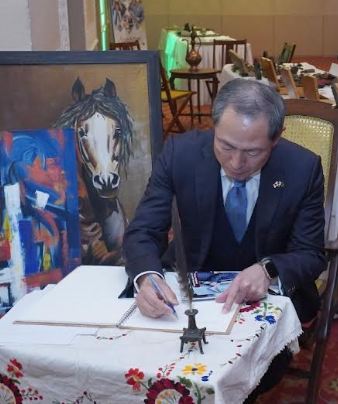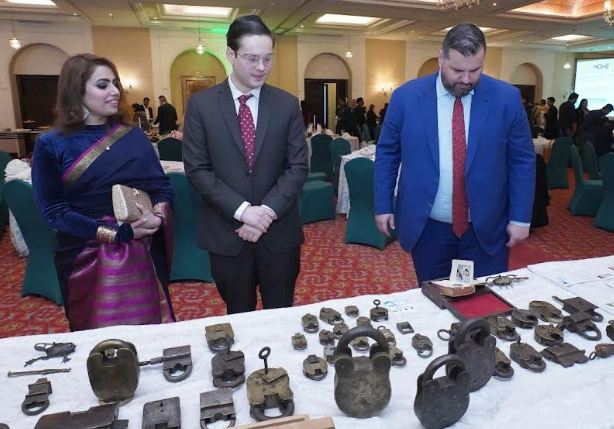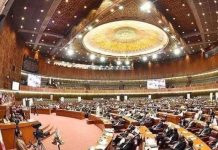A similar exhibition also took place in Islamabad Serena Hotel on Thursday January 18, 2025. A large number of diplomats witnessed the exhibition and praised the work of Farooq Raiz
Dr. Muhammad Kashif Ali
GUJRAT: The Hayatian Historical Society of the Department of History & Pakistan Studies at the University of Gujrat, recently organized a highly anticipated exhibition titled “History through Heritage.” This event took place at the prestigious Hafiz Hayat Campus and showcased an extraordinary private antique collection owned by Farooq Riaz, a passionate collector from the district of Gujrat. The exhibition provided a unique opportunity for students, faculty members, and the public to immerse themselves in centuries-old history through the lens of material culture, offering a rare glimpse into Pakistan’s rich cultural legacy.

A similar exhibition also took place in Islamabad Serena Hotel on Thursday January 18, 2025. A large number of diplomats witnessed the exhibition and praised the work of Farooq Raiz.
The exhibition featured an impressive array of historical artifacts spanning several eras, including rare locks, intricate timepieces, vintage swords, pots, firearms, postcards, stamps, and historical documents. These artifacts serve as tangible links to the past, preserving the essence of local culture and society. They allow visitors to engage with the everyday lives, technological innovations, and artistic achievements of people who lived hundreds of years ago. In doing so, the exhibition reinforces a community’s sense of identity and continuity, fostering a deeper connection to Pakistan’s multifaceted heritage.

Artifacts like manuscripts, old passports, and postcards are invaluable for documenting the political, social, and economic developments of earlier times. For historians and scholars, these items offer rare insights into the evolution of trade, governance, and legal systems over centuries. Historical documents on display provided a direct link to past events and societal shifts, helping trace the trajectory of Pakistan’s regional interactions, commerce, and diplomacy.
Among the most striking exhibits were weapons like swords, guns, and spears, which offer an essential perspective on military history and the power dynamics of various civilizations. These pieces not only represent the conflicts, conquests, and defence mechanisms of past societies but also serve as symbols of authority and prestige. In particular, the variety of swords displayed illuminated the craftsmanship and prestige associated with military leaders and warriors of past centuries, highlighting the cultural significance of weaponry in various regions of Pakistan.
Locks, pots, and other everyday objects further illustrated the skilled craftsmanship of earlier generations. The locks in particular captured the attention of many visitors, with Farooq Riaz’s collection standing as the largest in Pakistan. The variety of locks, ranging from those made during the Mughal era to British colonial times and modern periods, demonstrate the technological advancements and ingenuity involved in their creation. Locally produced in regions like Kotli Loharan (Sialkot), Hajiwala (Gujrat), and Aligarh (India), the locks range from intricate number pattern locks to magnetic mechanisms. The largest lock in the collection weighs over 5,000 grams, while the smallest was less than 50 grams, showcasing the diversity in both form and function. Such objects reflect the skill and dedication of artisans, whose techniques have been passed down through generations, preserving the legacy of craftsmanship in Pakistan.
Farooq Riaz’s personal collection is a testament to his lifelong passion and dedication to preserving Pakistan’s heritage. Over the course of more than thirty years, Mr. Riaz financed his own expeditions across the country, meticulously collecting artifacts from remote corners and forgotten markets. His collection, particularly the impressive assortment of locks, stands as a valuable contribution to the preservation of history and culture in Pakistan. His efforts demonstrate the importance of individual contributions in safeguarding our collective heritage for future generations.












